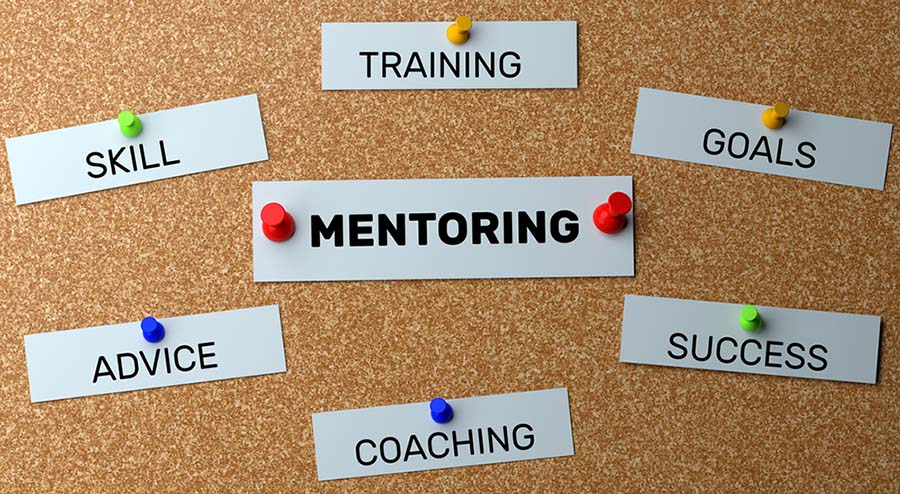As a business professional, have you ever considered engaging a coach or mentor to help you realize your full potential?
Sport coaches assist athletes by analyzing their performance and instructing them on ways to improve, while providing guidance and encouragement. Wouldn’t it be great to have someone at your side who provides you suggestions and perspectives, during your career? A person eager to listen and talk through options and strategies, while helping you remain focused and on track? This same person can propel you forward and help you be a better team player.
No matter what your years of experience, having a professional coach or mentor can help you enhance how you show up and deliver. If you work for a larger organization, you may have access to a formal program. These programs are a win-win for all parties involved. For employers, mentorships can help them foster and retain talent, and aid in the succession planning process. For the mentee, having a mentor provides them support in opening doors, offering fresh ideas, while also being a sounding board.
Mentoring is different than coaching
The primary focus of mentoring is on the mentee’s development and career aspirations. The learning process mutually benefits both parties and centers on trust. Coaches on the other hand are responsible for assessing and helping to improve an individual’s behavior or competence in a particular area. This relationship is typically time-bound and defined to meet specific goals and objectives.
As I’ve progressed in my career, I’ve been privileged to have mentors and coaches who have motivated and empowered me. They continue to help me stretch and advance beyond my limiting beliefs. I make it a priority to nurture these relationships and still reach out to gain their viewpoints before a big meeting or stressful encounter, to help me think through different angles and gain the confidence to push further. It’s is also rewarding to be a professional mentor and/or coach to help others grow. If you’re considering asking someone to mentor you, here are some tips to help you get started:
1. Hold an introductory meeting
During this meeting, you would clarify roles and responsibilities. As the mentee, you should schedule this meeting, set the agenda, and share your overall objectives and expectations.
2. Create an action plan
Together, you would create an action plan. As the mentee, you should share your strengths and identify growth needs based on the objectives you are looking to accomplish. Your action plan should include your goals, actions you plan to take to meet those goals, potential obstacles with mitigation steps, success measures, and target completion date. You should also outline areas where you need your mentor’s help such as skill development, networking, or career opportunities.
3. Act on and revise the action plan
In subsequent meetings, make it a regular practice to review progress on action items that were captured during prior meetings, and discuss items of interest, current challenges, and recent successes.
Taking on a new relationship is a commitment. To foster your mentor/mentee partnership, build in the appropriate amount of time and establish a regular meeting cadence to maintain an ongoing dialogue. Also, make sure to appreciate and celebrate your achievements along the way.

